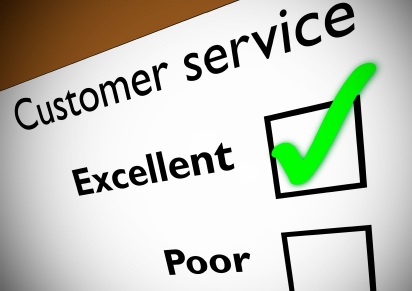Are You Afraid to Ask the Customer for Feedback?
You are a sales professional who labors to give the best in service to your customers. The best in service means being responsive, innovative, and creative when it comes to your customers business needs.
Your retention of customers is good, and your acquisition of new customers is solid as well. So what is missing?
Most sales professionals do not ask their customers “how am I doing?” and “what can I do better?”
Why it is important?
This one might be simpler to explain than you might believe. Sometimes we forget that asking questions does more than just generate a response.
Asking those questions does the following in the customers eyes:
- Shows a sincere desire to give the best service possible.
- Opens the feedback channel to allow someone who appreciates you to get what they may be missing in a relationship. It promotes communication.
- Shows confidence in the relationship by allowing constructive criticism in the quest for continuous improvement.
- Opens a window to what aspects of service, responsiveness, and fulfillment are most important, and allows you to focus on these.
- Sets up that next conversation in 6 months or a year where you ask again and get the positive feedback that you are doing all that has been asked.
You may ask for feedback in your relationships and marriage, and you may ask for feedback from your employer (in the form of a performance review), yet most often we make the assumption that our relationships with customers, especially those with longevity, are solid and rewarding. Sometimes you need to make certain.
Your customer will feel privileged that you are asking, and will sense your sincerity. It will create a bond that will help you when your other sales advantages, such as price or product superiority, disappear.
How to do it?
This is very easy, yet will come with some degree of surprise to many customers. Why? Because so few sales professionals ever ask the question.
I would suggest that this be done during an in-person meeting, one-on-one with the buyer for the first meeting.
Here is a simple suggested format:
- Ask the customer what attributes of a sales professional are most important to his/her operation. This could be responsiveness, communications, credibility, or many other strengths.
- After getting them on paper, ask him to help you rank them in descending order (the most important attributes get a 1, and least important gets the highest number). You really should be looking for the top 5 or less, as those are the most important.
- Now, have him help you rank your performance against those attributes. Use a simple A-Excellent, B-Good, C-Average, D-Below Average, F- Failing. Rank each one, and if there are areas that you have not done, they can be incomplete.
The last bullet above will be the “moment of truth” as it will tell you what the customer perceives. No matter how well you believe you are doing, this is important! It is actually the point of origin of your continuous improvement program, or confirmation that you are a solid sales professional who should look to maintain your efforts along with some incremental improvement.
This does not need to be any more difficult than this. You are opening a window or door to communication that will make more concrete your relationship with your customer.
The Manager’s Role in Customer Feedback
Managers should always feel comfort having this type of discussion with the customers of their sales professionals. It won’t have the depth of the comments above, yet is should be designed to get meaningful input regarding the customers sentiments about the performance of their sales professional.
When I say it will not have the depth, I mean that it is difficult for the manager to get the level of feedback that the sales professional could get. The manager’s role is to get some feedback regarding whether the professional is doing a good job and “taking care of the customer,”
With major customers, it should be expected, and it should be done with a sampling of smaller customers. The result of asking is the same as above…you get ‘points’ for asking. The objective is to make sure that the customer is being given good service.
Here is an example of how this can be done:
“Mr. Johnson, I am Rick’s sales manager here at ABC Corp. I wanted to introduce (or reintroduce) myself and ask how everything is going in your relationship with our company?” “How is Rick doing in taking care of your companies needs?” Note here that this question must be an open probe. It should result in conversation and not a yes or a no.
The responses start the conversation, and this should be a fairly short conversation.
Where Do You Go From Here?
I would make the following suggestions as to how you go about this activity:
- I would start with customers who you already have open communications with. It will allow you to hone your process.
- I would do it with every customer that you feel is important.
- Always follow-up and practice continuous improvement. Correct the issues and you will have a customer for life.
- Do it once a year on average.
- No matter how uncomfortable, or how much you modify, do it! Initially, it will get you a better rapport with your important customers.
Give it a try and see the difference it makes in your business relationship.
We appreciate you comments. Write me at Michael.Parker@BlackSalesJournal.com.
 July 13, 2015
|
Posted by Admin9!
July 13, 2015
|
Posted by Admin9!

 Categories:
Categories:  Tags:
Tags: 

Your Comments